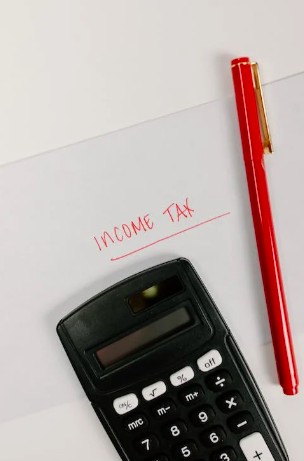Capital Gains: An Overview
According to the Income tax act, of 1961, any profits or gains that arise from the transfer of a capital asset in the previous year shall be chargeable to income tax under the head “Capital gains”.

Things we covered for you
Capital gains are deemed to be the income of the previous year in which the transfer took place. The profits or gains that arise from the sale of a capital asset are referred to as capital gains.
When selling a property, the difference between the sale price and the indexed cost of acquisition is subject to capital gains tax. However, some people were avoiding this tax by under-reporting the value of the property and paying some of the sale price in cash. This led to a loss for the government and the growth of unaccounted black money in society. To tackle this issue, the government introduced Section 50C in 2002, which mandates that the sale value of real estate cannot be lower than the value assessed by the government for stamp duty purposes.
What is section 50 c of the Income Tax Act, of 1961?
Section 50C Income Tax Act, 1961 is a provision that deals with the computation of capital gains tax on the sale of land or buildings or both, which are held as capital assets. This provision was introduced by the Finance Act, of 2002, and became effective from April 1, 2003. The primary objective of Section 50C is to prevent underreporting or undervaluation of the sale consideration of the property.
According to this section, the value of the consideration received or accruing as a result of the transfer of land or building or both should not be less than the value adopted or assessed by the Stamp Valuation Authority (SVA) to levy stamp duty on registration of properties. This value is known as the guidance value and is used to determine any undervaluation of land or building, if any, in the sale agreement.
In case the sale consideration received or claimed to be received is less than the value assessed by the SVA, the value assessed by the SVA is considered the full value of consideration for the purposes of calculating capital gains.
When is Section 50C of the Income Tax Act of 1961 Applicable?
- Section 50C applies to the transfer of land, buildings or both
- The transferred asset must be held as a capital asset
- It doesn’t matter whether the asset is a long-term or short-term capital asset
- The asset can be either depreciable or non-depreciable
What is the Stamp Valuation Authority (SVA)?
The Stamp Valuation Authority (SVA) is an authority that determines the value of stamp duty, which is a tax levied on the registration of property transactions. This valuation is considered at the time of calculating capital gains. In most cases, the SVA uses a guidance value to calculate the value of land or apartments based on the total market value of the property.
Section 50C of the Income Tax Act of 1961 uses the value adopted by the SVA to levy stamp duty on property registration as a guide to determine whether the land or building in the sale agreement is undervalued. If the sales consideration received or receivable is lower than the value adopted by the SVA, the SVA value further reduced by the cost/indexation is considered for calculating the capital gain.
How to Calculate Section 50C Capital Gain?
| Particulars | Amount |
| The full value of the consideration (the higher: sale value/ stamp duty value) | xxx |
| Less: Expenditure concerning the transfer | (xxx) |
| Net Consideration | XXX |
| Less: Cost of acquisition | (xxx) |
| Less: Cost of improvement | (xxx) |
| Capital Gains/ loss | XXX |
Note:
- If the Stamp Valuation Authority (SVA) value of the property is not less than 110% of the sale consideration, then the sale consideration will be treated as the full value of consideration for tax calculation purposes.
- In such cases, the capital gain will be calculated by reducing the sale consideration by the indexed cost of acquisition, without considering the SVA valuation.
What if the Selling Price is Less than the Value SVA Adopts?
When a property is sold for a consideration that is less than the value adopted by the Stamp Valuation Authority (SVA), there can be various genuine reasons for the transaction, such as negotiation, market conditions, or any other relevant factors.
Read: House Valuation in India: Demystifying Real Estate Valuation
However, in such cases, Section 50C of the Income Tax Act, 1961, comes into play to protect the property value from fluctuations caused by a significant gap between different stages of the sale transaction.
According to Section 50C, if a property’s sale consideration is less than the value adopted by the SVA, the deemed consideration for tax purposes will be the value adopted by the SVA. The value adopted by the SVA is the guidance value used to levy stamp duty on the registration of properties.
However, there are certain considerations covered under Section 50C of the Income Tax Act, 1961, to safeguard the seller against fluctuations in the property’s value caused due to a significant gap between various stages of the sale transaction. Thus, if the actual selling price of a capital asset is lower than its value adopted by the SVA for various reasons, Section 50C would protect the seller against undervaluation of the property.
What If a Seller Refuses to Accept the Value SVA Adopts?
When you sell a property, its value is assessed by the Stamp Valuation Authority (SVA) to determine the amount of stamp duty that the purchaser needs to pay. However, sometimes the value adopted by SVA may not reflect the Fair Market Value (FMV) or may not satisfy the seller.
While stamp duty is usually paid by the purchaser, the value determined by SVA affects the seller’s income tax, which can be significant. If you, as the seller, believe that the value adopted by SVA is not accurate, you can challenge it under Section 50C before the income tax authority.
The income tax officer will refer the case to a valuation officer who will assess the market value of the property. The valuation officer may ask for documents from you and will give you a chance to explain your position. The valuation officer will then issue a written order stating their valuation.
Read: Section 54F of the Income Tax Act, 1961: How to Save on Capital Gains Tax?
If you are still not satisfied with the valuation, you can appeal to higher authorities. This process allows you to ensure that the value of your property is accurately assessed for income tax purposes.
What if the Value Set by Valuation Officer is Higher Than the Value SVA Adopts?
If the value set by the valuation officer is higher than the value adopted by the Stamp Valuation Authority (SVA), it will not harm the taxpayer. When a reference is made to the valuation officer, the value determined by the valuation officer or the value adopted by the SVA, whichever is lower, will be taken as the sale consideration for computing capital gains.
For instance, if the SVA adopts a value of Rs. 12,00,000 and the valuation officer determines a value of Rs. 15,00,000, then the sale consideration under Section 50C will still be Rs. 12,00,000.
Any referral made to the valuation officer will not affect the taxpayer in any way. For example, if the valuation officer sets the value at Rs. 10,00,000, then the full value of consideration will be Rs. 10,00,000.
The valuation officer is appointed to find out the market value of a capital asset and to eliminate any hardship that taxpayers may experience. If the valuation officer finds that the value of the asset is higher than the value declared in the return made by the assessee, the valuation officer will issue a written order stating their valuation after allowing the taxpayer to be heard. Any value determined by the valuation officer can also be questioned before higher authorities.
Read: Things to Know After Selling Your House: Essential Post-Sale Checklist
How is the Stamp Duty Value Calculated Under Section 50C?
According to the information available in the search results, Section 50C of the Income Tax Act, 1961 is applicable only to land or buildings or both. The section uses the value adopted by the Stamp Valuation Authority (SVA) to levy stamp duty on the registration of properties, as guidance value to determine the undervaluation of land or building if any in the sale agreement.
The stamp duty value is to be taken as assessed by the Stamp Valuation Authority. However, the stamp duty on the date of the agreement may be different from the stamp duty value on the date of registration.
In such a scenario, two possible cases can arise:
- In Case 1, the stamp duty value on the date of the agreement should be taken into account.
- In Case 2, if the stamp duty value on the date of registration is higher than the value on the date of the agreement, then the actual sale consideration can be considered as the full value of consideration.
If the value adopted or assessed or assessable for stamp duty purposes is more than the consideration returned by the assessee, then the value adopted or assessed or assessable for stamp duty purposes will be deemed as the full value of consideration.
Read: Top Property Selling App Guide for Effortless Sales in India
How is Stamp Duty Value Calculated When the Assessee Disputes the Value Adopted by the Stamp Duty Authority?
When an assessee disputes the value adopted by the Stamp Valuation Authority (SVA), the value of the property for stamp duty is determined as per Section 50C of the Income Tax Act. Section 50C uses the value adopted by the SVA to levy stamp duty on the registration of properties as guidance value to determine the undervaluation of land or building if any in the sale agreement.
In case the stamp duty value on the date of the agreement is different from the value on the date of registration, there are two possible cases. Case 1: The stamp duty value on the date of the agreement should be taken.
If the assessee objects to the adoption of a higher value as fixed by the SVA, the Assessing Officer (AO) is bound to refer the valuation of the asset to the Departmental Valuation Officer (DVO) for determining the fair market value.
The DVO, while arriving at the value of a property under Section 50C(2), is bound to consider the drag in its market value caused by to dispute in the title of the property. This is to ensure that the assessee is not unfairly penalised.
It is also proposed to insert an Explanation in the Income Tax Act to provide that for sub-clauses (i) and (ii), “stamp duty value” shall mean the value adopted or assessed or assessable by any authority of the Central Government or a State Government for payment of stamp duty in respect of immovable property.
How Can NoBroker Help?
In conclusion, Section 50C of the Income Tax Act of 1961 has been enacted to prevent tax evasion and undervaluation of property transactions. This provision ensures that the actual sale consideration or fair market value of the property is considered for taxation, rather than the undervalued or underreported amount.
The provision has been amended over the years to remove certain ambiguities and provide clarity. Taxpayers are advised to carefully evaluate the provisions of Section 50C while undertaking any property transactions to avoid any potential tax liability or legal consequences.
NoBroker Legal Services can assist with Section 50C of the Income Tax Act, 1961, which deals with the valuation of property for taxation.
Our team of legal experts can help individuals and businesses navigate this section by providing guidance on the computation of capital gains, fair market value determination, and compliance with legal requirements. Contact NoBroker Legal Services to resolve any disputes related to Section 50C of the Income Tax Act.

Frequently Asked Questions
Ans. Introduced in the year 2002, Section 50C of the Income Tax Act applicability started from the 1st of April, 2003.
Ans. The impact of Section 50C capital gain calculation is significant; it ensures that the sale value of property is not reported below the government’s assessed value, thereby affecting the taxable capital gains.
If the sale consideration is less than the stamp duty value, you may challenge the valuation under Section 50C with the Income Tax Authority or accept the stamp duty value for tax purposes.
Ans. Non-compliance with Section 50C can result in potential tax liabilities or legal consequences. It is, therefore, important to ensure compliance with this section to avoid any potential issues.
Section 50C of the Income Tax Act’s latest amendments include modifications to ensure a more accurate assessment of property values, aligning them closer with the current market conditions to prevent undervaluation.









